The typical American home spends $2,190 on power each year, according to statistics from the EnergySage Marketplace. Depending on the fuels you use, you may also have additional costs for things like natural gas or oil. As a homeowner, you may not be able to influence the cost of these fuels, but you can reduce your energy use and, in turn, your power bill. If you want to understand where you are using power, you can get a home energy audit (or assessment) to find out how efficient your house is and how much money you can save on your energy bills.
What Is a Home Energy Audit?
A home energy audit is a comprehensive assessment of a residence’s energy usage, efficiency and performance. Through various diagnostic tests and inspections, the audit identifies areas of energy waste and provides recommendations for improving efficiency, reducing utility bills and enhancing indoor comfort and air quality.
What to Expect During a Home Energy Audit
Knowing what to expect during a home energy audit will help you prepare for the process. You’ll have a better understanding of the assessment’s purpose and how to actively engage with auditors. This knowledge ensures a smoother audit experience and maximizes the effectiveness of any energy-saving recommendations you receive.
Assessment of Energy Use
The initial step of a home energy audit typically involves a comprehensive assessment of the residence’s energy usage. Professionals conduct this by examining utility bills and analyzing energy consumption patterns. Many use specialized software or tools to track energy usage trends and compare them to regional averages. This assessment provides valuable insights into the home’s energy performance. It’s the foundation for subsequent diagnostic tests and recommendations for improvement.
Insulation and Air Leakage Inspection
Professionals conduct a thorough inspection of the home’s insulation and test for air leaks to assess energy efficiency. They start by visually inspecting insulation levels in walls, attics and floors for any damage or deficiencies. Next, they use specialized tools like thermal imaging cameras to detect heat loss and pinpoint air leakage points. They may also perform a blower door test to pressurize the home and identify air leaks. Based on their findings, they provide recommendations for improving insulation and sealing air leaks to enhance energy savings and indoor comfort.
HVAC Inspection
A key part of home energy audits involves inspecting heating and cooling systems to determine their efficiency. Experts first assess the age, size and condition of the machinery, noting signs of wear or inefficiency. Next, they inspect ducts for leaks or obstructions and measure airflow. They also assess the ventilation efficiency and make necessary adjustments to thermostat settings. For gas furnaces, trained experts conduct combustion safety testing. Based on their findings, they may suggest upgrading to ENERGY STAR-rated equipment. It’s also common for energy audits to include recommendations relating to duct sealing and improving ventilation to increase HVAC efficiency.
Lighting Assessment
Lighting plays a significant role in a home’s energy use, accounting for about nine percent of its overall consumption. Inefficient lighting fixtures and bulbs lead to unnecessary energy waste and higher utility bills. During home energy audits, professionals assess lighting by examining the type, efficiency and usage patterns of existing fixtures. They usually recommend upgrading to energy-efficient LED bulbs. Some homes also benefit from the installation of motion sensors or timers for lighting.
Appliance Inspection
Even though HVAC systems consume a considerable amount of energy, there are many other appliances in the home. Dishwashers, dryers, washing machines and refrigerators all contribute to energy consumption. During home energy audits, experts assess each appliance based on its age, efficiency ratings, usage patterns and actual performance. They use a variety of tools to perform these assessments. Power meters measure the electricity consumption of appliances over a specific period, providing precise data on energy usage. Infrared thermometers assess the temperature distribution and efficiency of refrigerators and freezers. Appliance watt meters measure the wattage and energy consumption of individual appliances when in use. Thermal imaging cameras detect heat loss and assess the efficiency of appliances such as refrigerators and ovens.
Water Use Evaluation
Water heating is one of the largest sources of electrical output in households. Professionals inspect water heaters, irrigation systems and plumbing fixtures as part of a home energy audit to determine water use and make recommendations. Their duties include checking for leaks, measuring flow rates and determining how efficient water heating systems are. Their research allows them to suggest ways to save water, such as putting in low-flow fixtures.
How Long Does a Home Energy Audit Take?
The size, complexity and level of detail of a home energy audit determine how long the process will take. Depending on the scope of the audit, it might take two to four hours to finish. Implementing the provided recommendations can, of course, take several days or longer.
Benefits of Home Energy Audits
Understanding the benefits of home energy audits is crucial, as it empowers homeowners to make informed decisions about improving energy efficiency. You can use recommendations from the audit to reduce utility costs, enhance your home’s comfort and minimize its environmental impact.
Lower Your Energy Bills
Home energy audits pinpoint areas of energy waste, allowing homeowners to address inefficiencies and reduce unnecessary energy consumption. Recommendations provided during audits, such as upgrading to energy-efficient appliances or improving insulation, can lead to significant reductions in energy usage and lower monthly bills. Auditors may suggest simple changes in habits or routines that can result in energy savings, such as adjusting thermostat settings or turning off lights when not in use.
Extend Appliance Lifespans
Home energy audits identify ways to improve the efficiency of appliances, reducing strain on components and prolonging their lifespan. Audits often include recommendations for appliance maintenance, such as cleaning filters and coils, which can prevent premature wear and tear. Professionals will offer tips on optimizing appliance usage to minimize energy consumption and reduce stress on internal mechanisms, further extending their lifespan.
Better Indoor Air Quality
Audits address moisture issues that can lead to mold and mildew growth, reducing indoor humidity levels and improving air quality. They also locate and seal air leaks, preventing outdoor pollutants from entering the home and making the air healthier to breathe.
Make Your Home More Comfortable
A home energy audit can significantly enhance comfort by identifying and sealing air leaks, minimizing drafts and creating a more consistent temperature throughout the home. Recommendations for improving insulation and ventilation help regulate humidity levels and prevent uncomfortable moisture buildup.
Reduce Your Carbon Footprint
Home energy audits substantially reduce your home’s carbon footprint by identifying energy inefficiencies and recommending improvements. For example, sealing air leaks and improving insulation reduces the need for heating and cooling, resulting in lower energy consumption and emissions. Upgrading to energy-efficient appliances and lighting further reduces electricity usage. The less energy you use, the smaller the home’s carbon footprint.
Childers Air Plumbing & Electric makes it simple to access home energy audits in Beckley, WV. We specialize in HVAC services, electrical work, drain cleaning and more. Call us today to schedule a home energy audit.

